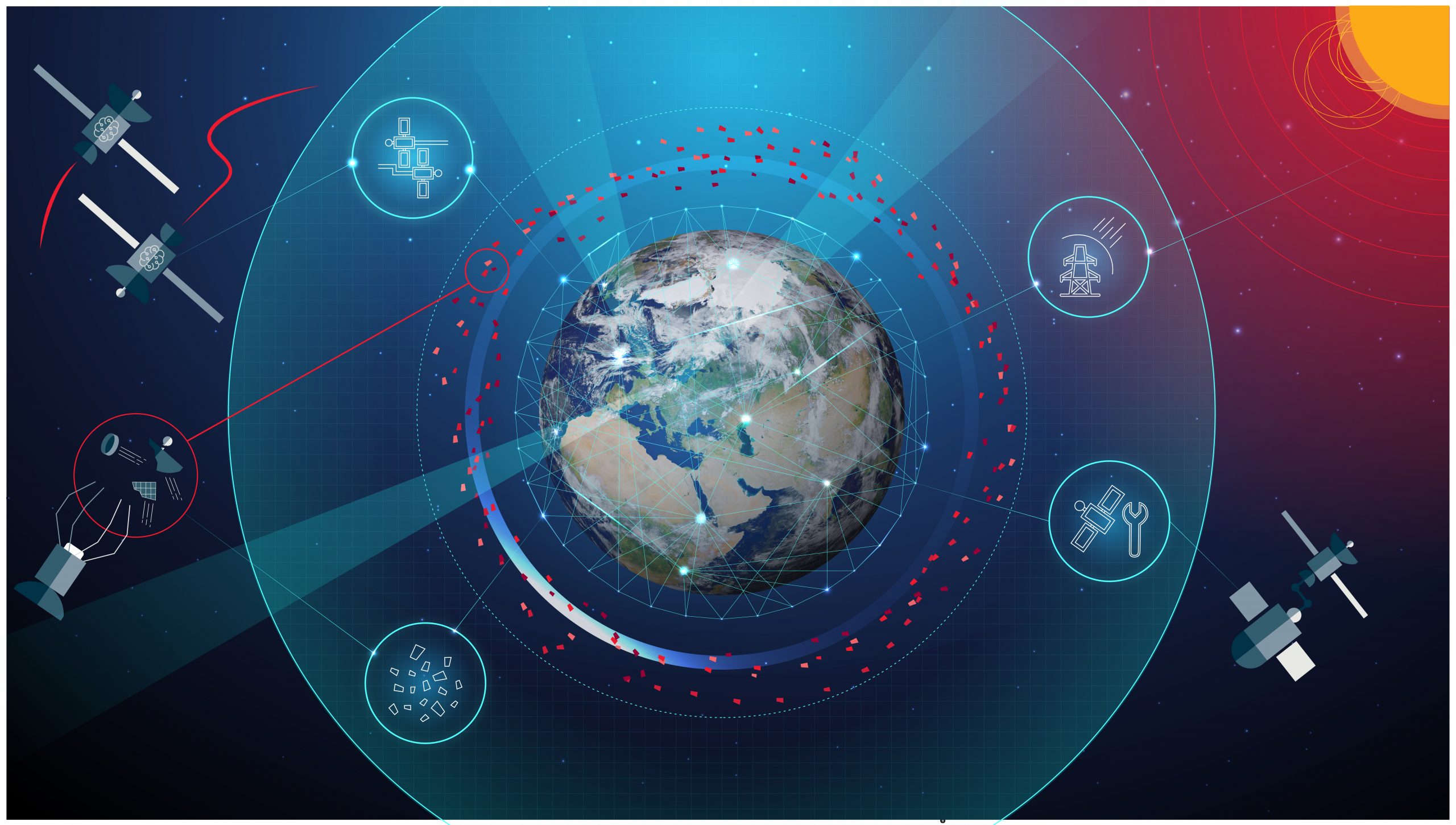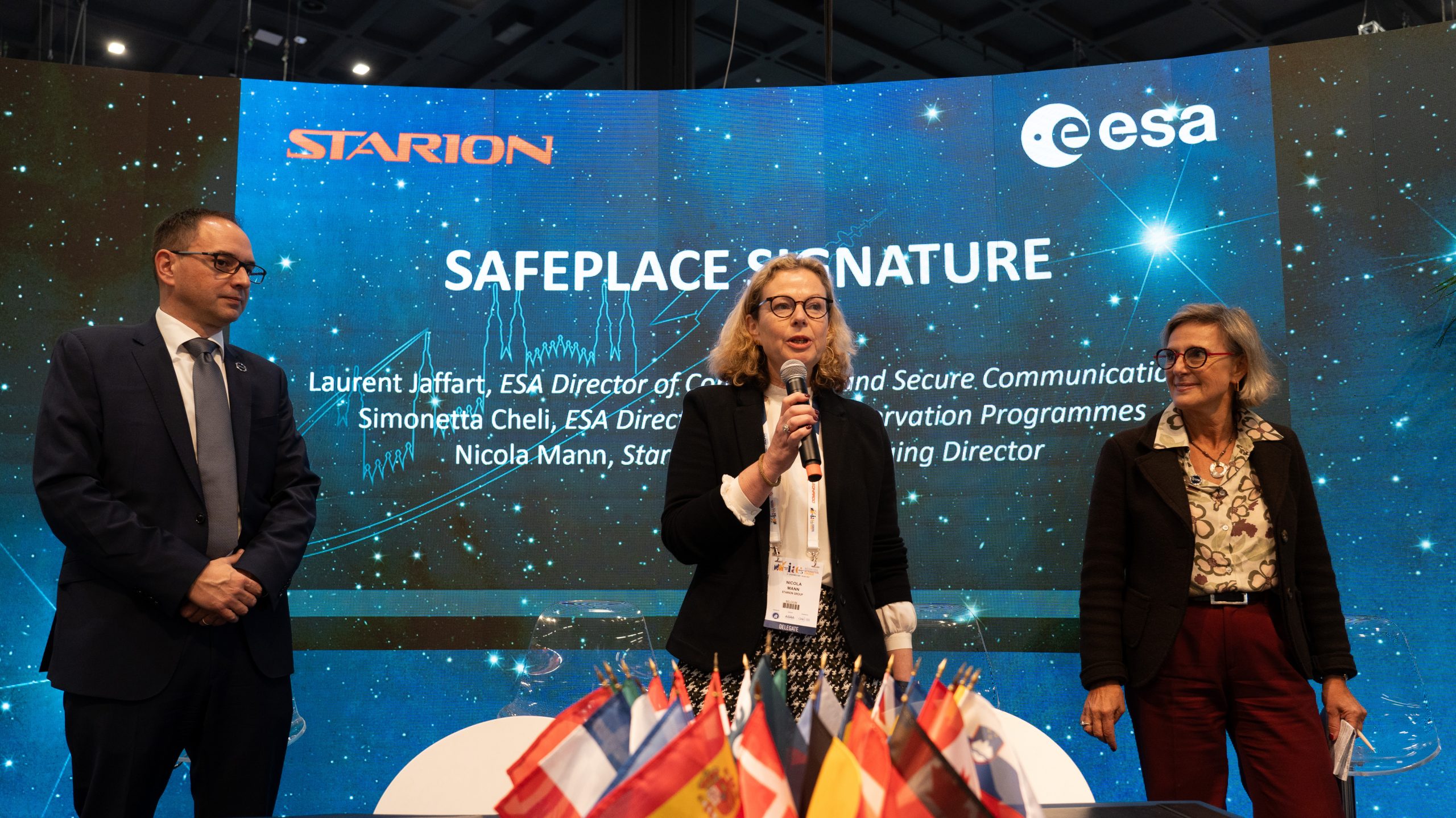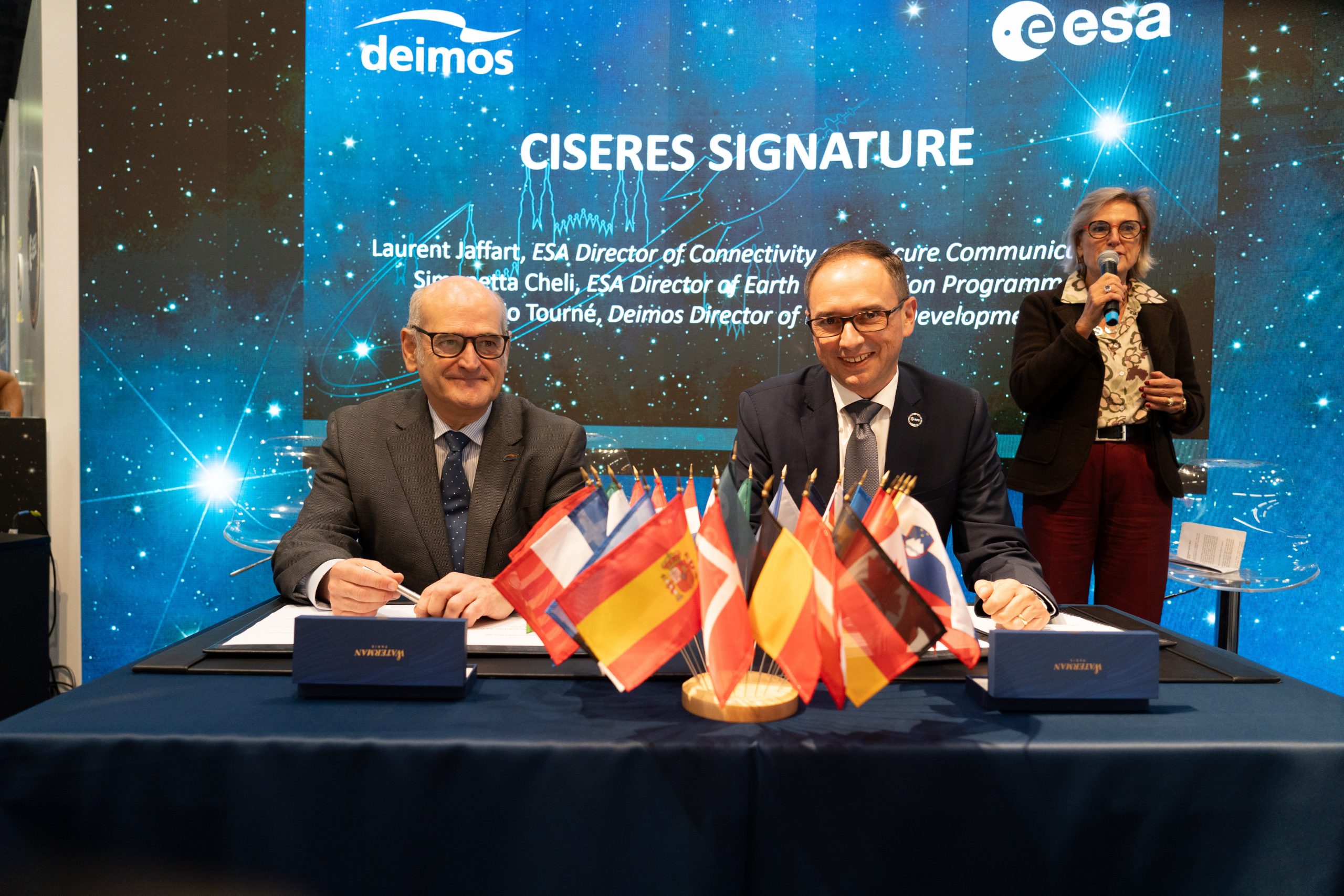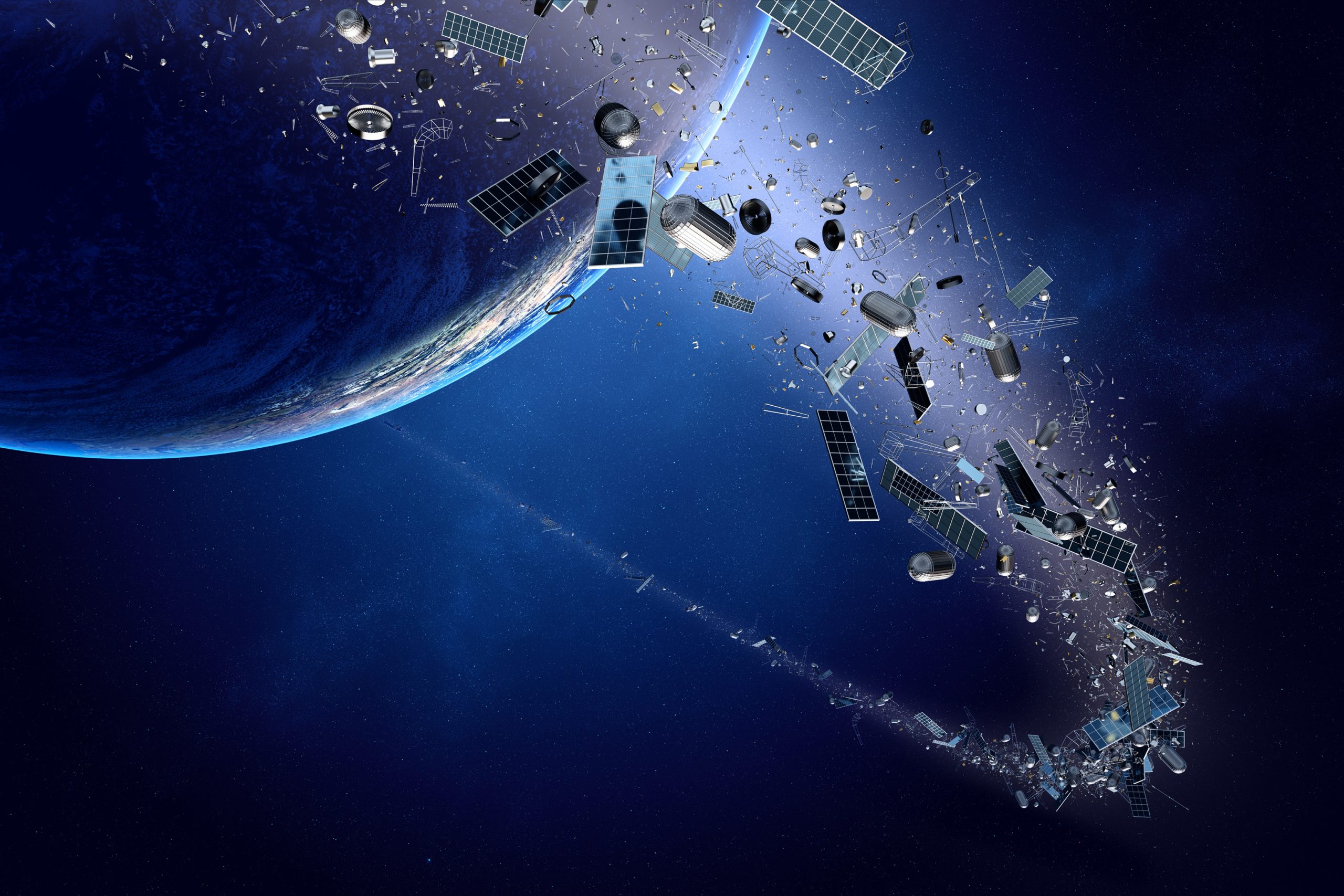Accelerate the use of space
Protection of space assets
Timely and accurate warnings of space hazards are needed.

What’s the problem?
There is a large number of objects in orbit around Earth, mostly comprising non-functional satellites and upper stages as well as fragments of past explosions and collisions. Some 36,000 objects larger than a tennis ball are orbiting the Earth – and only 13% of these are actively controlled. The rest is space debris that threaten all the satellites on which our economies and society depend.
In addition, space weather disturbances caused by unpredictable solar activity can damage and destroy satellites and disrupt power grids and communication networks on the ground.
The protection of our assets in space and on the ground is a pre-requisite for the sustainment and development of our modern societies, which are increasingly dependent on space technology applications. This requires systems and tools allowing for safe and sustainable operations in space and for the provision of operational space weather services.
Why act now?
Tens of thousands of new satellites, many in constellations, are being launched globally, generating a stark increase of collision risks. ESA already receives hundreds of collision warnings every week for its own fleet of spacecraft. The current approach consisting of manually assessing collision risk and designing appropriate avoidance manoeuvres will soon prove to be an overwhelming task. Furthermore, space debris mitigation and remediation actions are yet to be sufficiently mastered. Every year, several dozens of objects are not properly disposed and an average of ten unwanted break-ups is observed. This poses huge challenges to the long-term sustainability of the outer space environment and therefore to current and future spacecraft operators.
Europe’s vulnerability to disruptions caused by space hazards (debris and space weather events) is growing in parallel with the increasing reliance of our society on satellite services. Even a moderate solar event could cost Europe more than €13 billion in damage and lost services. Such an event happened in 2012, but closely missed the Earth. Will we be so lucky next time?
What is needed?
Europe must develop operational systems to enable the detection, identification, and avoidance of natural and human-made space hazards. There is an urgent need to enhance space sustainability by applying zero debris principles and developing a new European commercial capacity to provide innovative in-orbit services, such as deorbiting, repairing and refuelling active satellites, thus creating a circular economy in space.
Who will use it?
All actors whose activities can be directly or indirectly impacted by space hazards such as satellite operators, insurers, intergovernmental organisations, critical infrastructure operators, civil protection agencies, etc.
Why do this in Europe?
Building operational space weather forecasting systems, prepare spaceflight for zero debris standards and practices, and developing commercial satellite-servicing capacities are not costs, they are investments in a sustainable space future. Such systems will foster new, made-in-Europe businesses that will secure European technological and commercial leadership as well as autonomy in access to and utilisation of space. In particular, operational space weather services will help protect European digital infrastructures, networks and industries from major impacts, reinforcing their economic value and resilience. Through this endeavour, Europe will continue to act as a role model for multi-national collaboration, a demonstration much needed in today’s world.
What’s the next step?
Working closely with the EU, national governments, public agencies and private initiatives over the next two years, ESA will establish what is needed, identify gaps in the current provision, and create the system architectures and building blocks. Individual ESA and EU member states will be invited to champion the projects accelerated under PROTECT.
What are the wider benefits?
Building these crucial systems will provide the actionable information and timely warnings that Europe needs to prevent damage and disruption to its economically vital space and ground infrastructures. This will ensure a safer, more stable European society and the prosperity of its citizens, while establishing commercial leadership, protecting freedom of action for Europe, and safeguarding the global competitiveness of the European space industry
Download the factsheet
Protection of Space Assets Accelerator
Read more about the accelerators

